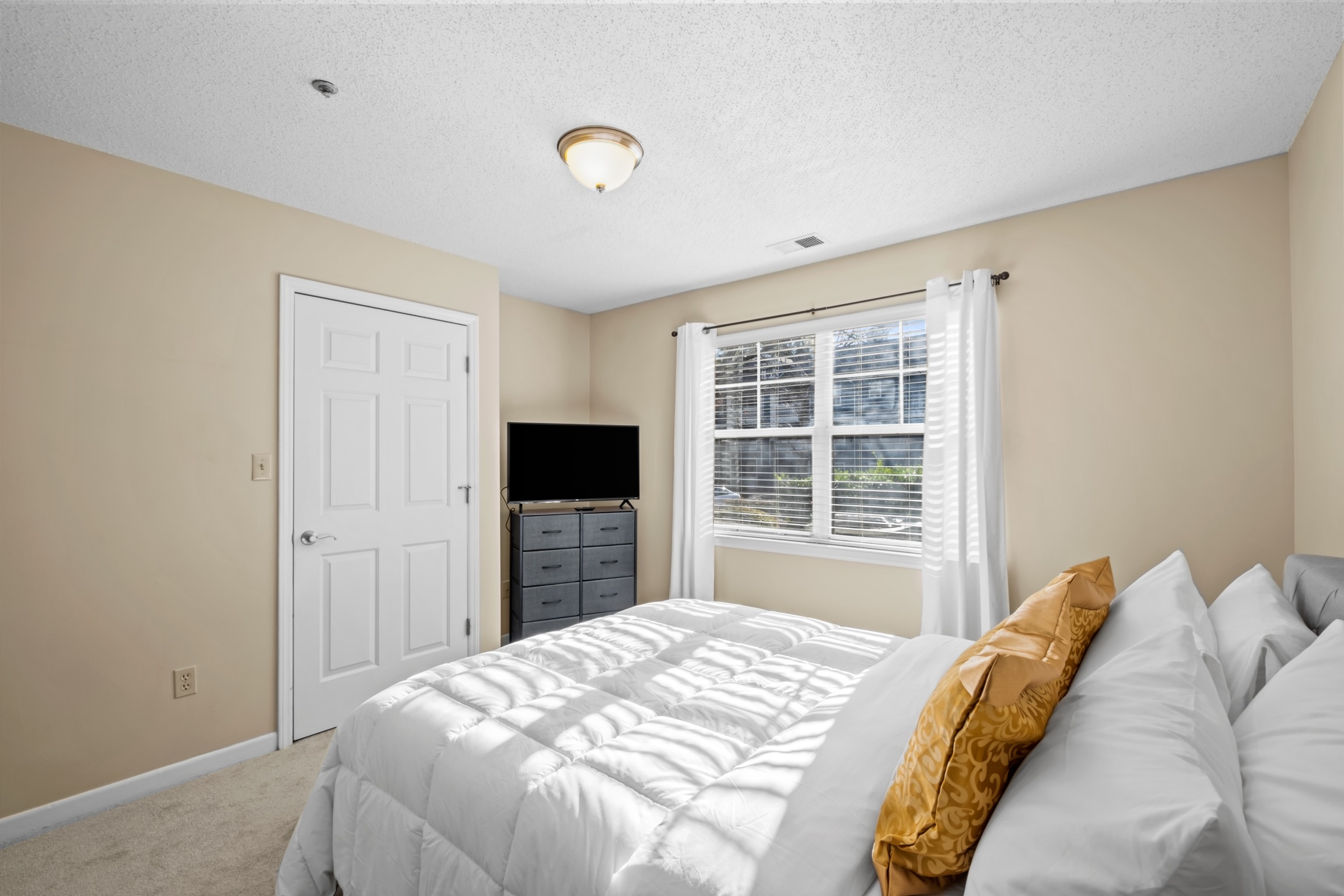Wells Fargo and Charlotte’s Corporate Housing Demand
Charlotte, a vibrant and rapidly growing metropolis, has firmly established itself as a major financial hub, second only to New York City. At the heart of its bustling Uptown skyline stands the East Coast headquarters of Wells Fargo, a beacon that draws a steady stream of talent from across the country and the globe. Every year, this corporate giant welcomes hundreds of new interns, contractors, and transferees, each facing a critical and immediate question upon arrival: Where am I going to live?
These professionals typically need flexible, short-term, or monthly furnished housing solutions-a place to call home for a project that lasts three months, a summer internship, or a transitional period before permanent relocation. Confronted with an unfamiliar city, the default choice for many might be a hotel. However, a more sophisticated, comfortable, and cost-effective solution has become the gold standard for the discerning corporate traveler: corporate housing. This leads to the pivotal question every new Wells Fargo arrival should ask: “Should I stay in a hotel or choose corporate housing?” The answer, for a multitude of compelling reasons, increasingly leans toward the latter.
What Is Corporate Housing (and Who Is It For?)
Corporate housing, also known as serviced apartments or temporary housing, is a specialized class of rental accommodation designed specifically for traveling professionals on the move. Unlike a standard apartment, it comes fully furnished and equipped with all the necessities for daily living-from furniture and linens to kitchenware and electronics. Unlike a hotel, it operates on flexible, month-to-month lease terms, making it ideal for stays of 30 days or more.
his housing model is tailored for a mobile workforce. Its primary users include:
- Interns and Trainees: Students or recent graduates on fixed-duration assignments.
- Relocating Employees: Individuals or families in transition, needing a temporary home while selling a previous property or seeking permanent residence in the new city.
- Business Consultants & Contractors: Project-based workers who require a stable base for weeks or months at a time.
- Traveling Nurses and Healthcare Professionals: Those on extended assignments at local medical facilities.
Corporate housing perfectly occupies the middle ground between the transient nature of hotels and the long-term commitment of a traditional 12-month apartment lease. It offers the flexibility of a short-term stay with the space, privacy, and comfort of a real home, effectively bridging the gap for professionals in transitional life phases.
Corporate Housing vs. Hotels: The Key Differences
While a hotel room provides a roof over one’s head, corporate housing provides a home. The differences between the two are profound and impact everything from daily comfort to financial well-being. The following comparison highlights the key distinctions that make corporate housing the superior choice for extended stays.
| Feature | Corporate Housing | Hotels |
|---|---|---|
| Lease Term | Flexible month-to-month | Daily or weekly |
| Space | Full apartment (1–3 bedrooms) | One room (studio-style) |
| Amenities | Full kitchen, in-unit laundry, Wi-Fi, parking | Limited amenities (mini-fridge, microwave), often paid extras |
| Cost | Lower for long stays (30+ days) | High nightly rate, costly for extended periods |
| Comfort & Vibe | Feels like a real home; personal, private, and relaxing | Temporary and impersonal; can feel sterile and confining |
1. The Space to Truly Live and Work
The most immediate difference is space. A hotel confines you to a single room where you sleep, work, eat, and relax. Your bed is often just feet from your desk, and the constant presence of a unmade bed or room service cart can be mentally draining over time. Corporate housing, by contrast, offers a full apartment, complete with separate living, sleeping, and working areas. For a Wells Fargo intern preparing for a presentation or a relocating employee needing to take a private work call, having a dedicated living room or a second bedroom that serves as a home office is invaluable. This physical separation of spaces is crucial for maintaining a healthy work-life balance, preventing the feeling of being perpetually “stuck” in one room.
2. The Game-Changing Amenities: Kitchen and Laundry
The financial and lifestyle benefits of a full kitchen cannot be overstated. A hotel might offer a costly breakfast buffet or room service, forcing you to dine out for every meal. Corporate housing provides a fully equipped kitchen with a refrigerator, stove, oven, microwave, and dishwasher. This allows residents to grocery shop and prepare their own healthy meals, a significant cost savings that adds up dramatically over a 30 to 90-day stay. It also accommodates dietary preferences and the simple, comforting ritual of cooking a familiar meal-a small piece of home in a new city.
Similarly, the inclusion of a full, in-unit washer and dryer is a monumental upgrade over a hotel’s laundry service, which is often expensive and inconvenient. The ability to do laundry on your own schedule, without accumulating a giant bag of dirty clothes, is a simple luxury that contributes immensely to a normalized, stress-free daily routine.
3. The Financial Equation: Value Over Time
At first glance, a hotel’s nightly rate might not seem exorbitant. However, this cost is deceptive for a long-term stay. Over 30 days, even a moderately priced hotel can amount to several thousand dollars, not including taxes, parking fees, and the high cost of eating every meal out. Corporate housing operates on a simple, all-inclusive monthly rate. This rate is almost always significantly lower than the equivalent hotel stay and bundles utilities, high-speed Wi-Fi, and parking into one predictable payment. For a company managing relocation budgets or an intern mindful of their finances, this cost-efficiency is a decisive factor.
4. The Psychological Advantage: From “Staying” to “Living”
Perhaps the most underrated benefit of corporate housing is the psychological comfort it provides. A hotel feels temporary and anonymous. The generic art, the constant turnover of guests, and the lack of personal space can exacerbate feelings of loneliness and dislocation. Corporate housing is designed to feel like a home. You can unpack your suitcase into real closets, decorate with personal items, and unwind on a comfortable sofa while streaming your favorite show on a large TV. This sense of stability and normalcy is critical for someone trying to perform at their best in a new professional environment. It reduces the mental fatigue of travel and allows Wells Fargo employees and interns to arrive at work each day feeling settled, refreshed, and focused.
Conclusion: Making the Smart Choice for Your Wells Fargo Journey
For the hundreds of professionals embarking on a Wells Fargo chapter in Charlotte, the choice of accommodation is more than just a logistical decision-it’s a choice that will define their daily experience. While hotels serve a purpose for brief, two-to-three-day trips, they are fundamentally ill-suited for the extended stays that characterize internships and corporate relocations.
Corporate housing emerges as the clear winner, offering a powerful combination of financial prudence, practical amenities, and profound personal comfort. It transforms a potentially stressful transition into a seamless and enjoyable experience. By choosing a fully furnished apartment with the space to live, work, and relax, Wells Fargo’s talented newcomers can invest their energy where it matters most: in building a successful career and exploring everything the Queen City has to offer. It’s not just a place to stay; it’s a foundation for success.



